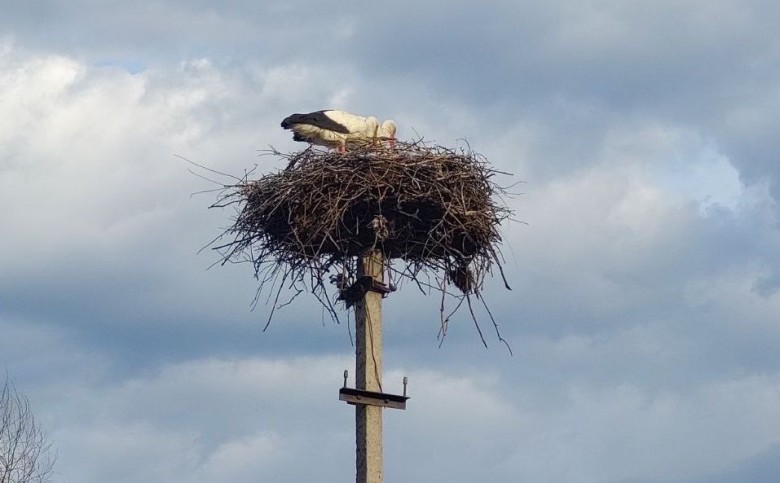The storks returned to their nests in the Dnipropetrovsk region, mounted by DTEK energy workers earlier

Over the course of the past 9 years, in order to ensure safety of birds DTEK Dnipro Grids has been systematically mounting special artificial platforms on the power towers, where storks built their nests. It was done in late autumn and early spring – while the storks were in the south. It helps protect birds from electrocution and company’s customers – from blackouts. During all this time, energy workers have relocated over 180 nests to the protective platforms. Including 20 platforms that DTEK Dnipro Grids specialists managed to install in time at the end of last year within the large-scale environmental education project #EnergyWings.
This year, due to war and difficult situation in the country (in the power industry, in particular, due to damage of the electrical infrastructure in many regions of Ukraine, caused by hostilities), the company was unable to mount new platforms for storks nesting. Nevertheless, the birds returned to “safe nests”, mounted by energy workers earlier.
“The birds are returning to nests on safe platforms with their families, settling in familiar spots and getting ready to laying eggs and bringing out nestlings. According to our estimates, the storks have now settled in about 80% of nesting spots on power towers. We will keep monitoring condition of nests on the protective structures, as far as the situation permits, in order to ensure that returning storks have a place to settle in and bring out the nestlings,” – says representative of the company.
As stated earlier, besides 20 special platforms for storks nesting, in 2021, DTEK Dnipro Grids has also installed 716 bird diverters and covers on power lines to protect birds from electrocution and 37 artificial nests for birds of prey, such as scops owls and hobby falcons. Environmentalists estimate that such business initiatives over the course of past 9 years helped save more than 3,700 birds, including those protected by the Berne Convention and the Red Book of Ukraine.
Energy workers plan to continue implementing biodiversity protection projects in the Dnipropetrovsk region after the war’s end.

